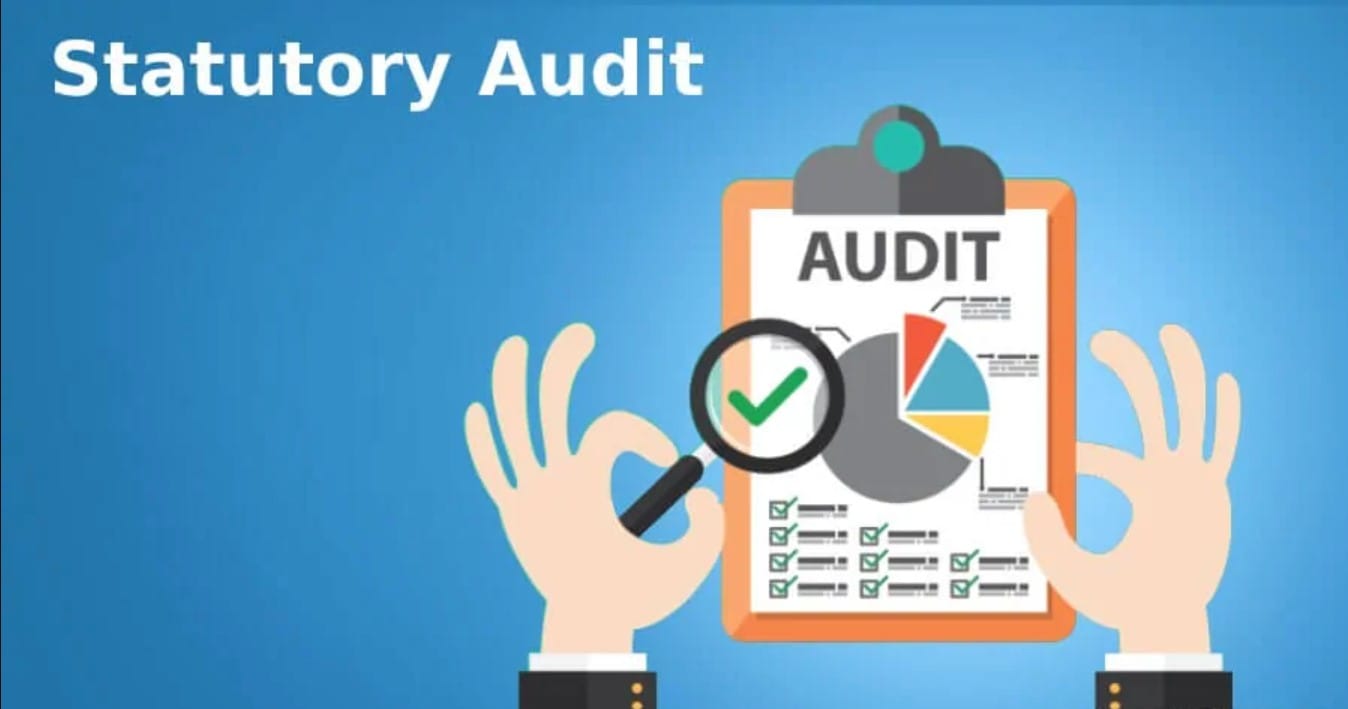As per IBC, 2016, the statutory audit of corporate debtors (CDs) plays a vital role by providing transparency and ensuring the accuracy of financial records during the insolvency resolution process. Here’s a detailed overview of the statutory audit of corporate debtors under the IBC:
Purpose of Statutory Audit under IBC
1. Verification of Financial Statements
- Accuracy: The statutory audit verifies the accuracy, correctness as well as the fairness of the financial statements, which are being prepared by the corporate debtor. Verification includes the financial statement of the corporate debtor, which comprise of balance sheet, profit & loss account, and cash flow statement.
2. Compliance with Accounting Standards
- Standards: Ensures compliance with applicable accounting standards and regulatory requirements prescribed by the Institute of Chartered Accountants of India (ICAI) or other relevant authorities.
3. Identification of Financial Irregularities
- Irregularities: Detects any financial irregularities, misstatements, or discrepancies in the financial records of the corporate debtor.
4. Disclosure of Assets and Liabilities
- Transparency: Provides transparency regarding the assets, liabilities, and financial position of the corporate debtor, which is crucial for creditors and stakeholders during the resolution process.
Key Aspects of Statutory Audit under IBC
1. Timing and Frequency
- Initial Audit: The statutory audit of the corporate debtor’s financial statements is typically conducted at the commencement of insolvency proceedings. This establishes the baseline financial position of the debtor.
- Ongoing Monitoring: Depending on the duration of the resolution process, subsequent audits may be conducted periodically to monitor financial performance and compliance with resolution plans.
2. Roles and Responsibilities
- Auditor: The statutory auditor is appointed to examine and report on the financial statements of the corporate debtor. They are responsible for conducting the audit in accordance with auditing standards and regulatory requirements.
- Insolvency Professional (IP): The IP or resolution professional (RP) plays a crucial role in the audit process. They coordinate with the auditor, provide access to relevant financial records and information, and ensure compliance with audit timelines. Their role is to facilitate the audit process and ensure that all necessary information is provided to the auditor.
3. Audit Scope
- Financial Statements: The audit covers the financial statement of the corporate debtor, including, balance sheet, profit and loss account, cash flow statement, and other financial records of the corporate debtor.
- Transactions: Review of significant transactions, including revenues, expenses, investments, loans, and related party transactions to ensure accuracy and compliance with accounting standards.
- Compliance: Verification of compliance with applicable laws, regulations, and accounting standards, including the Companies Act, 2013, and accounting standards issued by ICAI.
4. Audit Report
- Opinion: The auditor provides an opinion on the true and fair view of the financial statements, in respect of the financial position and performance of the corporate debtor.
- Findings: Any material misstatements, irregularities, or non-compliance identified during the audit are disclosed in the audit report along with recommendations for corrective actions.
- Communication: The audit report is communicated to the corporate debtor’s board of directors, creditors’ committee, RP, and regulatory authorities as required by law. This communication is a key part of the audit process, ensuring that all relevant parties are informed of the auditor’s findings and recommendations.
5. Legal Compliance and Framework
- The audit must comply with the legal framework established under the IBC and other relevant laws governing corporate governance and financial reporting.
- Auditors are required to adhere to auditing standards issued by ICAI and guidelines prescribed by regulatory authorities to ensure the audit’s integrity and reliability.
6. Role in Decision-Making
- The audit report provides critical information for evaluating resolution plans, determining the feasibility of restructuring, or assessing the need for liquidation based on the financial viability of the corporate debtor. It assists stakeholders, including creditors and the CoC, in making informed decisions during the insolvency resolution process.
- It provides critical information for evaluating resolution plans, determining the feasibility of restructuring, or assessing the need for liquidation based on the financial viability of the corporate debtor.
Importance of Statutory Audit under IBC
- Transparency and Accountability: The statutory audit under the IBC plays a pivotal role in ensuring transparency in financial reporting and accountability of management to creditors and stakeholders. This empowers all parties with the necessary information to make informed decisions.
- Credibility: Enhances the credibility of financial information presented during insolvency proceedings, thereby facilitating trust and confidence among stakeholders.
- Compliance: Verifies compliance with legal and regulatory requirements, promoting adherence to corporate governance standards and ethical practices.
Conducting Statutory Audit under IBC
- Appointment of Statutory Auditor: The statutory auditor is appointed by the corporate debtor’s board of directors or shareholders. During insolvency proceedings, the resolution professional (RP) or insolvency professional (IP) overseeing the process plays a significant role in liaising with the auditor.
- Scope and Methodology: The audit scope includes reviewing financial transactions, verifying the accuracy of financial statements, assessing compliance with accounting standards, and reporting any findings to stakeholders.
- Reporting: The auditor prepares an audit report, wherein the same provides an audit pinion on the financial statements’, specifically on the fairness and compliance with applicable standards. This report is submitted to the corporate debtor’s board, the RP, creditors’ committee, and regulatory authorities as required.
Compliance and Legal Framework
- The statutory audit under the IBC must comply with the provisions of the Code, including Sections related to corporate governance, financial reporting, and compliance with accounting standards.
- The audit ensures adherence to the principles of transparency, accountability, and fairness in financial reporting, which are essential for maintaining the credibility of the insolvency resolution process.
Role in Insolvency Resolution
- Credibility: The audit enhances the credibility of financial information provided during the resolution process, facilitating informed decision-making by creditors and stakeholders.
- Asset Verification: It verifies the existence and valuation of assets, which is crucial for determining the liquidation value or assessing the feasibility of resolution plans.
- Protection of Stakeholder Interests: The statutory audit ensures the protection of creditors’ interests by providing accurate financial information and preventing manipulation or misrepresentation of financial data. This role is crucial in instilling a sense of security and reassurance among all stakeholders.
The statutory audit of corporate debtors under the IBC serves as a cornerstone for ensuring transparency, accuracy, and compliance in financial reporting during insolvency proceedings. Such an audit plays a crucial role in safeguarding the interests of creditors, stakeholders, and the integrity of the resolution process as a whole.
The statutory audit of corporate debtors under the IBC serves as a critical mechanism for verifying financial integrity, ensuring compliance with laws and regulations, and supporting effective decision-making in the insolvency resolution process. It upholds standards of transparency and accountability, which are essential for maintaining trust and fairness among all parties involved, thereby instilling a sense of confidence and security.
At Ujjwal Gupta & Co
We, at Ujjwal Gupta & Co, are dedicated to delivering personalized, high-quality solutions tailored to meet your financial and business needs. With our team of professionals and a client-first approach, we ensure that every challenge is met with expert guidance and strategic insight.
We are dedicated to ensuring your business’s success by providing best service practice available in the industry and that too at a cost effective pricing. Our team of experts is excited to work with you and provide the support you need to thrive in the Indian business landscape.
Our only motive is to create Value for Our Clients and accordingly, have a Client Value System at our Office.
So, let us help you navigate the complexities of finance and compliance, empowering you to focus on what matters most — growing your business. Get in touch today, and take the first step towards financial peace of mind.
A statutory audit under IBC is an independent examination of the financial statements of a corporate debtor to ensure that they reflect a true and fair view of the company’s financial position. It is mandated by law and must be conducted by a qualified auditor as per the Companies Act, 2013.
The statutory audit is conducted by a qualified auditor appointed by the corporate debtor before the insolvency process. However, during the Corporate Insolvency Resolution Process (CIRP), the Resolution Professional (RP) may oversee the audit and ensure compliance with the IBC and accounting standards.
The primary objective is to provide an accurate and transparent view of the corporate debtor’s financial health to creditors, the Resolution Professional, the Committee of Creditors (CoC), and the National Company Law Tribunal (NCLT). The audit helps in:
- Assessing the solvency and liquidity of the corporate debtor.
- Identifying discrepancies in financial reporting.
- Ensuring compliance with statutory laws and accounting standards.
- Highlighting any potential fraudulent or suspicious financial activities.
The auditor’s key responsibilities include:
- Examining the financial statements for accuracy and compliance with accounting standards.
- Verifying the completeness of the corporate debtor’s assets and liabilities.
- Checking for any related party transactions that could affect the insolvency process.
- Identifying and reporting any irregularities, such as fraudulent transactions or misstatements.
- Coordinating with the Resolution Professional to ensure all financial information is accurate and up to date.
The Resolution Professional (RP) oversees the overall management of the corporate debtor during the CIRP. While the RP does not directly conduct the audit, they ensure that the statutory audit is performed properly and that the auditor has access to all relevant financial information. The RP may use the audit findings to make decisions about the resolution plan or liquidation process.
The statutory audit provides creditors with reliable financial information regarding the corporate debtor’s assets, liabilities, and financial performance. This helps creditors:
- Make informed decisions about approving or rejecting resolution plans.
- Assess the company’s financial position and the likelihood of recovering their dues.
- Identify any
- fraudulent transactions or irregularities that could affect their interests.
The key financial statements audited include:
- The balance sheet, which shows the corporate debtor’s assets and liabilities.
- The profit and loss statement, which reflects the company’s income and expenses.
- The cash flow statement, which shows the movement of cash within the company.
- Notes to accounts and disclosures, which provide additional financial information.
- A statutory audit focuses on the overall financial statements of the corporate debtor and ensures compliance with accounting and legal standards. It covers all financial aspects of the debtor, including assets, liabilities, income, and expenses.
- A transaction audit (or forensic audit) specifically examines individual transactions to detect fraudulent, preferential, undervalued, or extortionate transactions during the insolvency process. The aim of a transaction audit is to identify and reverse any irregular or illegal financial transactions.
If the statutory auditor identifies discrepancies, fraudulent transactions, or misstatements in the corporate debtor’s accounts, they are required to report them to the Resolution Professional and the Committee of Creditors (CoC). The auditor may also be required to report these issues to the NCLT and regulatory authorities, such as the Institute of Chartered Accountants of India (ICAI), for further investigation.
The statutory audit is critical in determining whether the company should be revived through a resolution plan or liquidated. The audit helps in:
- Providing a clear picture of the company’s financial viability.
- Ensuring accurate valuation of assets for resolution applicants or during liquidation.
- Identifying any hidden liabilities or contingent liabilities that may affect the resolution plan.
- Highlighting any financial issues that could lead to a recommendation for liquidation if the company is deemed non-viable
Why Choose UGC?

Client Centric Approach
Client is the key driver of our service offerings. Our approach to service offerings is based on a client centric and customized approach. Our specialized teams are a mix of technical and industry experience in order to serve clientele for their specific needs.

Team Work
We have built high performing teams supported by strong work ethic. Our team is a mix of experts, professionals and support staff from technical and varied academic, social and ethnic backgrounds. We believe diversification plays a vital role in motivating the team.

Quick Turnaround
We always endeavour for a quick turnaround time to serve our clientele. We are supported by an experienced and client focussed support teams to offer timely services to our clientele. In case of any business exigencies and time sensitive service requirements, you can always count on us.

Open Communications
We believe that open communication is the core principle in order to demonstrate trust, build long lasting and valuable relationships with clientele. We are committed to ensuring transparency in communication, service offerings and delivery. We provide professional services to our clients.

Client Value System
We value for the Client time and thus, we offer services that are value for money. Quality professional services are provided to our clients, so that they are able to achieve their desired results. We are a quality trademark in the industry and thus, our clients count on us always.

Quality in Delivering Work
Our service offerings are driven by quality and reviews at every level. We strive to provide a qualitative and value-added delivery to our clientele. At all times, we endeavour to provide exceptional client service by meeting client expectations and driving client satisfaction.





















